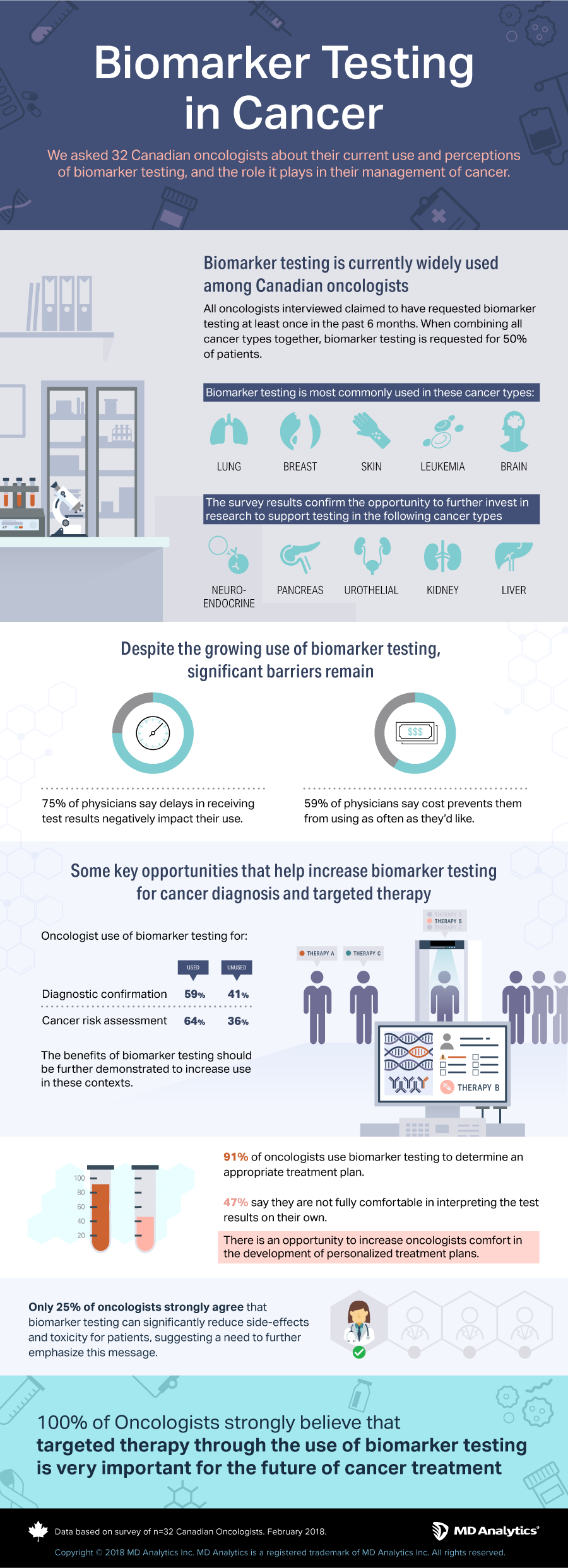Biomarkers are molecules found in bodily fluids or tissues (including the tumor tissue). They provide valuable information about the cancer cells and non-cancer cells, when analyzing which biomarkers are produced in response to the cancer. By developing a biomarker profile of a patient’s cancer, doctors can recommend the best suited treatment plan. This insight allows patients, who are more likely to respond to a targeted drug, avoid treatments that would be less beneficial. Biomarker testing is now widely used among Canadian oncologists, but barriers to expanding their use remain.
Read More
We asked 32 Canadian Oncologists about their current use and perceptions of biomarker testing, and the role it plays in their management of cancer. All oncologists interviewed claimed to have requested biomarker testing at least once in the past 6 months. When combining all cancer types together, biomarker testing is requested for 50% of patients.
Biomarker testing is used in these cancer types: lung, breast, skin, leukemia and brain. The survey results confirm the opportunity to further invest in research to support testing in the following cancer types: neuro-endocrine, pancreas, urothelial, kidney and liver.
Despite the growing use of biomarker testing, significant barrier remain. 75% of physicians say delays in receiving test results negatively impact their use. 59% of physicians say cost prevents them from using as often as they’d like. 100% of oncologists strongly believe that targeted therapy through the use of biomarket testing is very important for the future of cancer treatment.
Past Survey Data
Patient-Powered Health: Embracing Technology Solutions
The Rise of Involved Healthcare Consumers
Patient-doctor relationships have historically been very hierarchical with doctors being the experts and patients heeding their advice. In more recent years, cultural...
What Digital Media do Physicians Use?
The importance being placed on digital media by pharma and med tech/device manufacturers has grown over the past few years as it has become apparent that relying on the...
Past Survey Data
Gen Pop experience with Vaccines
Patient-Powered Health: Embracing Technology Solutions
The Rise of Involved Healthcare Consumers
Patient-doctor relationships have historically been very hierarchical with doctors being the experts and patients heeding their advice. In more recent years, cultural...
What Digital Media do Physicians Use?
The importance being placed on digital media by pharma and med tech/device manufacturers has grown over the past few years as it has become apparent that relying on the...

